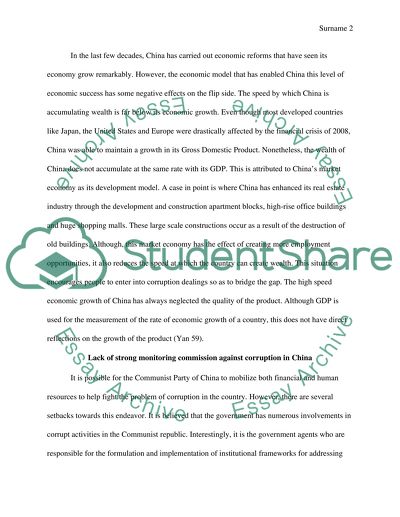Cite this document
(“What are the main causes of corruption in China Research Paper”, n.d.)
Retrieved from https://studentshare.org/sociology/1474452-what-are-the-main-causes-of-corruption-in-china
Retrieved from https://studentshare.org/sociology/1474452-what-are-the-main-causes-of-corruption-in-china
(What Are the Main Causes of Corruption in China Research Paper)
https://studentshare.org/sociology/1474452-what-are-the-main-causes-of-corruption-in-china.
https://studentshare.org/sociology/1474452-what-are-the-main-causes-of-corruption-in-china.
“What Are the Main Causes of Corruption in China Research Paper”, n.d. https://studentshare.org/sociology/1474452-what-are-the-main-causes-of-corruption-in-china.


